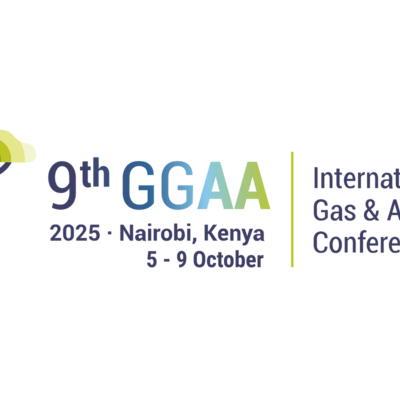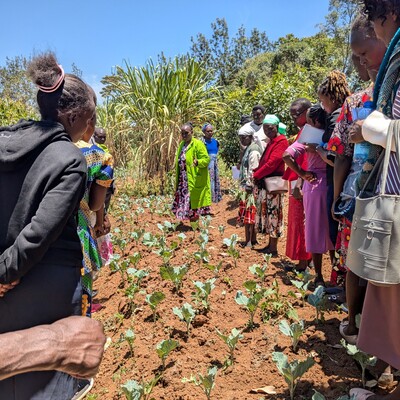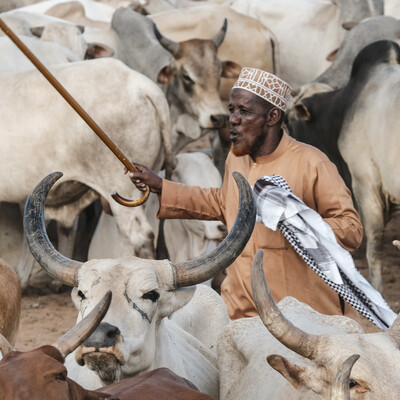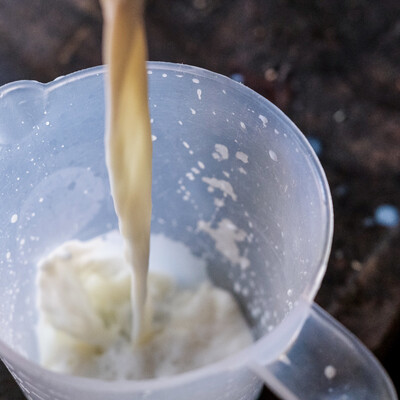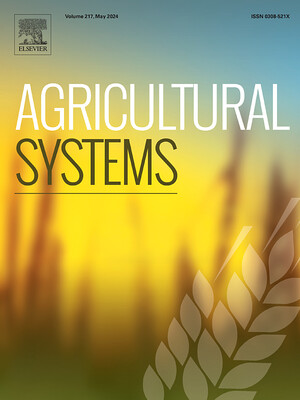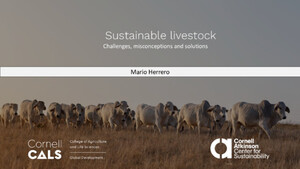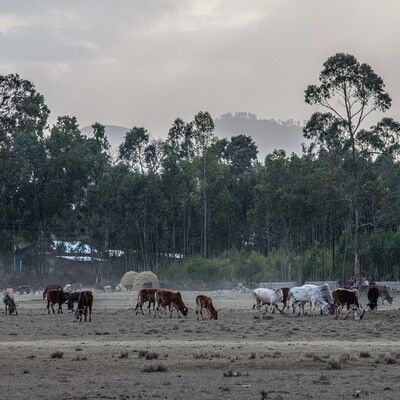
Climate change communication and social learning for smarter agricultural research

Mapping social learning domains and actors (Photo: ILRI / Ewen Le Borgne)
Social learning helps smart organizations become smarter, and their activities to end up in smarter results. This is what a group of people working on climate change communication and social learning (CCSL) posited in June 2013 at a plan-and-writeshop.
Hypothesis A: Social learning improves institutional processes and performance/effectiveness in the context of climate change.
Hypothesis B: Social learning processes lead to improved development outcomes/results in the context of climate change.
On 19 and 20 December a largely overlapping group convened another meeting in London in order to prepare activities for 2014 – a critical year in as far as the CCSL group largely moves away from (just) documentation towards implementation and testing. Next year will thus be the year of applying social learning in practice, learning from it, meticulously documenting these experiences and adjusting ideas, approaches and tools.
Direct opportunities for this testing and ‘social learning in practice’ concern the CGIAR Research Program on climate change, agriculture and food security (CCAFS) as well as possibly the Collaborative Adaptation Research Initiative in Africa and Asia (CARIAA) as well as a myriad of planned smaller initiatives (e.g. around ILRI programs) or spontanous requests submitted via the CCSL sandbox.
What was discussed and agreed at the London meeting
During the two days of the planning meeting in London, the participants:
- Shared their ambitions for the meeting and for 2014
- Took stock of progress to date, particularly around the guidelines-and-framework and the database of case studies
- Mapped the respective domains of: CCSL, (social) learning as in the related networks and conversations, CCAFS (as one of the main instigators of CCSL work) as well as the broader institutional framework which creates opportunities and constraints for this CCSL work
- On the basis of the above exercise, summarized three key areas of intervention for 2014:
- Institutional change through learning and donor support for that change (working on smart organizations)
- Building a strong evidence base for social learning methodologies and taking this work to scale (working on smart results through social learning)
- Bringing together communities of practice and advocating social learning methodologies (organizing the engagement activities to extend the interest and possible cooperation of other organizations and networks in CCSL work)
- Planned key activities for 2014, including a tentative budget and timeline
- Listed possible events that might be of interest for the CCSL group to plant activities in 2014
- Summarized immediate next steps
This rich work was achieved thanks to facilitation by CCSL sandbox moderators Carl Jackson and Pete Cranston.
Important components, lessons and insights to implement social learning
After now 1.5 years of work (following the kick-off workshop on CCSL work in May 2o12), a lot of research and investigation has been carried out leading to a growing body of evidence about social learning which can now be mobilized for action. Upcoming ideas and efforts have been presented at various occasions such as the 2013 CCAFS science meeting, the Climate Change Knowledge Exchange and communication and more recently during the ICT4Ag conference.
It can appear slightly daunting to embark on social learning, and the overwhelming amount of papers, tools and approaches does not simplify this issue. This is why the CCSL team is developing a framework and set of guidelines helping anyone – social learning neophytes as well as experienced social learning practitioners – to zoom in on ideas, approaches and methodologies that might guide their work most appropriately. The framework considers an iterative cycle of activities to assess where one is at with social learning, identify what to do next, gather feedback to improve their approach, document and gather data about their approach, analyse results and derive new actions from it.
A series of case studies has also been gathered to document evidence about social learning. Most of these case studies, for now, are extracted from the previous working papers developed (see a full list of CCSL and related resources), but plans for 2014 include doubling efforts on this front, to gather first hand evidence about where/when/how and why social learning works (or not) in certain contexts.
A number of networks and organizations (e.g. Knowledge Management for Development, the knowledge brokers’ forum or the recent CG Parade group) are also interested in this body of work and working on related lines of work, albeit not always using the same vocabulary. 2014 really will have to somewhat rally or even federate these conversations, both on the sandbox and in face-to-face events. Visiting these communities will be one of the key activities next year to start taking advantage of this opportunity.
The monitoring of social learning efforts remains a thorny issue and the case studies that will be gathered throughout 2014 will be scrutinized by a group of experts to inform robust assessment of social learning plans, processes and results. This is critical to build further interest in social learning and also to understand better where it does not fit.
The human facilitation of the guidelines and framework remains a resource-intensive business, although that is the level of efforts that would ideally help organizations and individuals apply social learning in a more appropriate manner, due to better guidance upstream and maintaining a constant learning dialogue – although the latter is partly addressed via the Sandbox.
CCAFS has been a major player in the CCSL field until now, but it is becoming ever clearer that other actors have to step in if this initiative is to continue and gain momentum.
An exciting program of work is planned for 2014 and the new year will be the ‘make it or break it‘ test of time for the CCSL group. More than ever, social learning on social learning will be key for all smart organizations wishing to achieve smarter development results.
Read more about the London CCSL planning meeting





